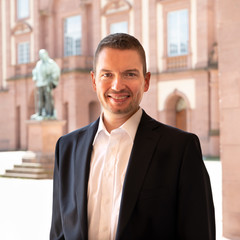MKT 561: Service Business Model Innovations
Contents
Students get an insight into and understand current developments and marketing-specific characteristics of the solution business and business model innovations in general. Especially the topics of servitization, digital transformation and service business model innovations are discussed and knowledge deepened based on multiple case studies. Along the process students will get to know and apply various essential methods, such as service blueprinting, customer journey mapping, business model canvas etc. for the cases at hand. At the end of the module students will be able to apply and adapt their knowledge of marketing strategies, concepts and instruments to specific problems in the services marketing context.
Learning outcomes
Upon successful completion of this course, students
- are able to apply various essential methods for marketing purposes, such as customer journey mapping, service blueprinting, business model canvas etc.,
- understand the role of managing customer experiences for innovative business models,
- are able to evaluate and interpret the measurement of service quality,
- will have acquired skills to generate customer insights to provide a better customer experience in B2C and B2B contexts.
Necessary prerequisites
Not taken MKT 560
Recommended prerequisites
Basic marketing knowledge on Bachelor level
| Forms of teaching and learning | Contact hours | Independent study time |
|---|---|---|
| Lecture | 2 SWS | 9 SWS |
| ECTS credits | 4 |
| Graded | yes |
| Workload | 120h |
| Language | English |
| Form of assessment | Written exam (60 min) |
| Restricted admission | no |
| Further information | – |
Examiner Performing lecturer |  | Prof. Dr. Florian Kraus Prof. Dr. Florian Kraus |
| Frequency of offering | Fall semester |
| Duration of module | 1 semester |
| Range of application | M.Sc. MMM, M.Sc. WiPäd, M.Sc. VWL, M.Sc. Wirt. Inf., MAKUWI |
| Preliminary course work | – |
| Program-specific Competency Goals | CG 1 |
| Literature | Case studies on different aspects of services business model innovations are available for purchase online (details are provided in the course material). A detailed list of the reading material as well as additional references is included in the course material. |
| Course outline | The structure of the course is as follows: 1. Introduction & Lecture: Basics and Evolution of Services Marketing 2. From Customer Insights to New Service Business Models in B2C 3. Digital Transformation in the Insurance Industry: Technological Disruption as Opportunity for Augmented Business Models 4. Servitization and Transportation: From Selling Products to Selling Performance 5. Service Quality – Dimensions and SERVQUAL Example |